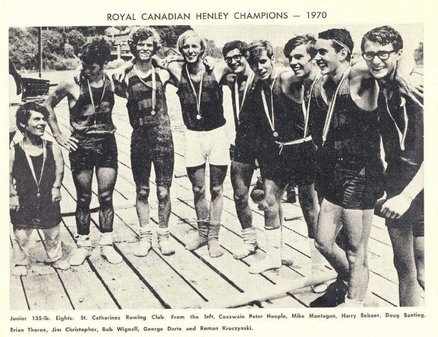
As parents, we want our own children’s adolescence to be a modern remake of our own, but without the disappointments, challenges and inevitable heartbreaks. We want school to be challenging and exciting and engaging and safe. In short, we want to wrap our children in the same gauze (and maybe a little bubble wrap) that fogs our own vision of the past. But, as we all know, life is not quite like that.
At this time of year, many of our parents come in to meet about the process of transitioning out from Kenneth Gordon to a more mainstream learning environment. Their reasons vary.
Sometimes it is financial. There is no question that attending any independent school is expensive and although KGMS is less costly that many of the alternatives, it is still a financial stretch for almost any family.
Sometimes it is social. The gauzy backwards gaze remembers dances and pep rallies; hockey games and musicals; all of the bells and whistles that a small school like us can’t offer. As adults, our personal blinders don’t let us imagine high school without it.
Ideally, however, it is because they feel that their child is ready to take on the challenge. They have done their research, checked out local and specialized schools and are ready to take the plunge into the unknown. As a school, our role is to ensure that both the parents and the receiving team are fully aware of any special needs to be addressed or accommodations that might need to implemented to ease the transition process and set the student up for success. The result of such a meeting of minds might mean a smooth transition or conversely it could result in a decision to wait a bit longer. Whatever the outcome, the process hopefully fosters an informed choice.
For most of our parents, trying to overlay the academic needs of their children on top of the memories of their own high school experiences is a challenge. Rather than confidently predicting success for their child based upon the path that they themselves had followed, many parents see their own daughter’s or son’s future as an undiscovered country. It just doesn’t fit the pattern that they themselves know.
Andrew Solomon in his book Far from the Tree, tells the stories of parents who not only learn to deal with their exceptional children but also find profound meaning in doing so. His title is a play on the expression “the apple doesn’t fall far from the tree” which is usually a reference to children who are younger replicas of their parents. Solomon, by contrast talks about those of our children who do not fit that mold. They have fallen “far from the tree”.
Solomon’s…proposition is that diversity is what unites us all. He writes about families coping with deafness, dwarfism, Down syndrome, autism, schizophrenia, multiple severe disabilities, with children who are prodigies, [etc.]. While each of these characteristics is potentially isolating, the experience of difference within families is universal, as are the triumphs of love Solomon documents in every chapter.
He concludes that all parenting turns on a crucial question: to what extent parents should accept their children for who they are, and to what extent they should help them become their best selves. He notes that many families grow closer through caring for a challenging child and that most discover supportive communities of others similarly affected; some are inspired to become advocates and activists, celebrating the very conditions about which they once despaired.
We have amazing families at Kenneth Gordon. Families who are working hard to understand the learning challenges faced by their children and to develop the support and advocacy skills to make certain that they get the best possible academic programme. It is hard work for parents, and requires both dedication and perseverance. It also requires that all of the adults in a child’s life sit back and keep things in perspective. To admit, and then internalize the fact that the path that a student follows to adulthood might be a very different from the one that they remember.
To this end, it is important to recognize that not everyone takes the same traditional route through their years at school. It is this recognition that helps us to lift the gauze from our parental rear view mirrors, and acknowledge that some of our children will not have the same high school or post-secondary experiences that we had. They will follow their own path, and one that may very well be far from the family “tree”.
The real excitement for us as parents and educators is in helping our children to begin their personal journeys to adulthood. I can guarantee that the result will unpredictable, exciting, rewarding, and very different from our own.


 RSS Feed
RSS Feed
